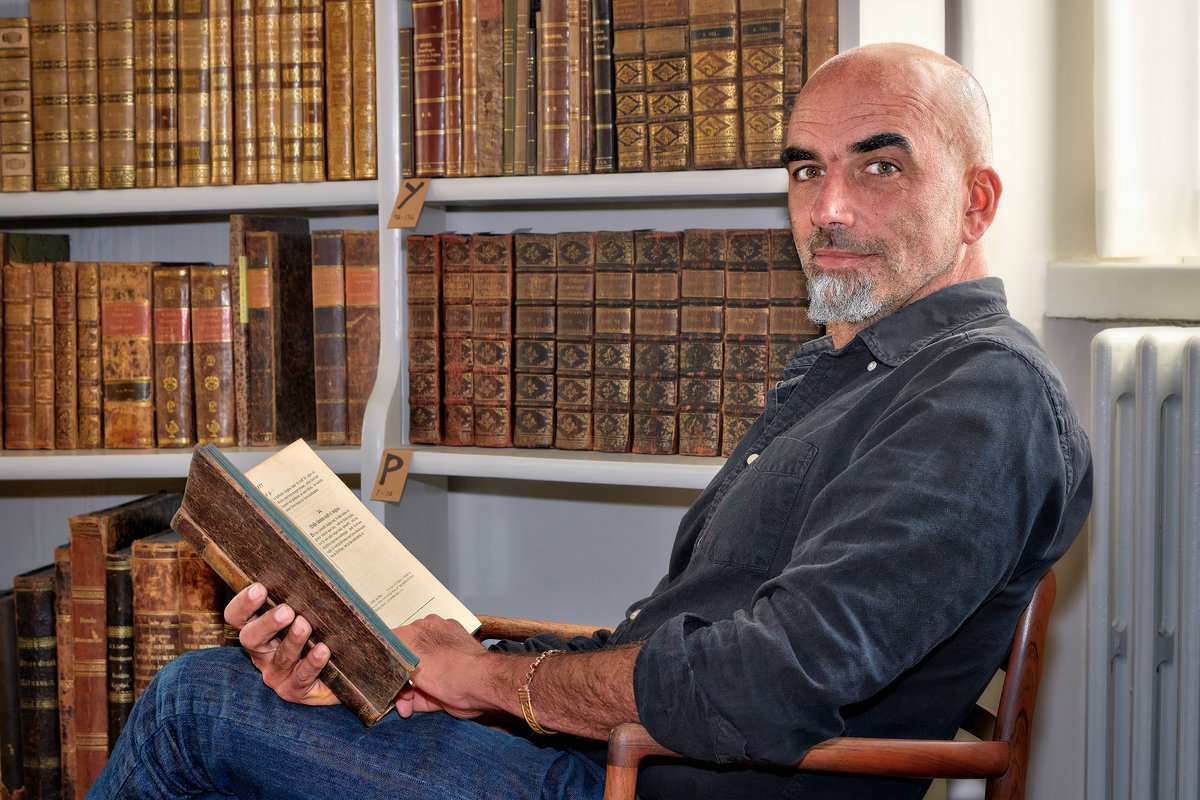Rethinking how we address the climate emergency may be the key to averting it

From Starting Grant to the Global Stage: Nick Shepherd named as Lead Author on climate change White Paper
Nick Shepherd is an Associate Professor in the Department of Archeology and Heritage Studies at Aarhus University. This article revolves around the climate emergency and how a Starting Grant from AUFF in 2017 played a crucial part in allowing Shepherd to further his research on the topic.
Named as Lead Author on climate change White Paper
Nick Shepherd, an Associate Professor in the Department of Archaeology and Heritage Studies, has been named as Lead Author on a White Paper on solutions to the climate emergency. The White Paper will form the basis for discussions at a forthcoming meeting of the IPCC, UNESCO and ICOMOS. The Intergovernmental Panel on Climate Change (IPCC) is generally acknowledged as the foremost scientific body dealing with climate change. Billed as an International Co-Sponsored Meeting on Culture, Heritage and Climate Change, it is anticipated that this meeting will lead to a more sustained engagement between the three bodies.
The AUFF Starting Grant: a golden opportunity
Shepherd attributes part of his success to an AUFF Starting Grant: “When I arrived at Aarhus University in 2017 from South Africa, I had to get to understand a new funding environment. The Starting Grant allowed me to hit the ground running, and to establish the project on Heritage and the Anthropocene (HATA), with postdoctoral researcher Joshua Cohen and PhD student Martin Høybye. Our research track record from HATA, together with my previous work, brought me to the attention of the organizers of the co-sponsored meeting.
An important aspect of the AUFF Starting Grants is that they serve as a way of ensuring international recruitment, with the intention of establishing new and independent research-fields and research-groups within already established and expanding fields. AUFF makes use of the Starting Grants to ensure that extraordinary researchers are presented with excellent career opportunities at Aarhus University. The primary audience of Starting Grants includes assistant professors, associate professors, and professors.
Aarhus University was especially appealing
Shepherd holds an honorary position as Extraordinary Professor at the University of Pretoria. He has been a Mandela Fellow at Harvard University, and a Visiting Professor at Brown University, Colgate University and the University of Basel. He comes to Aarhus University from the University of Cape Town, where he was Director of the Centre for African Studies, and convened the program in Public Culture and Heritage in Africa. He says: “I was attracted to come to AU by the global reputation of the Department of Archaeology and Heritage Studies. Having met with Bjarke Paarup, Felix Riede and Laura McAtackney, and knowing the work of David Harvey and Helle Vandkilde by reputation, I thought this is a place where I can build my research career”.
Rethinking the climate emergency: the time to act is now
In relation to the White Paper, he says: “2021 has been the year in which the climate emergency has burst into public consciousness. Questions of sustainability are front-and-center in the global agenda. AU’s program in Sustainable Heritage Management has the potential to be a world-leading program, and a signature program for the university. I hope to bring my experience with the White Paper back to the students at AU, to say that each one of us can make a difference. We are living at a decisive historical moment. The scale of the challenge is too big for us to say: OK, we’ll leave this up to the climate scientists. Each one of us, working in our different fields, needs to say: How do I rethink questions of curriculum in the light of the climate emergency? I am excited to see what emerges as we rethink a university curriculum for the Anthropocene”.
The team
Shepherd is leading a multinational team of researchers, including Archaeologists, Anthropologists, Ecologists, Engineers, Indigenous Knowledge Holders, and Development Economists. Their report is expected to be published in mid-2022.